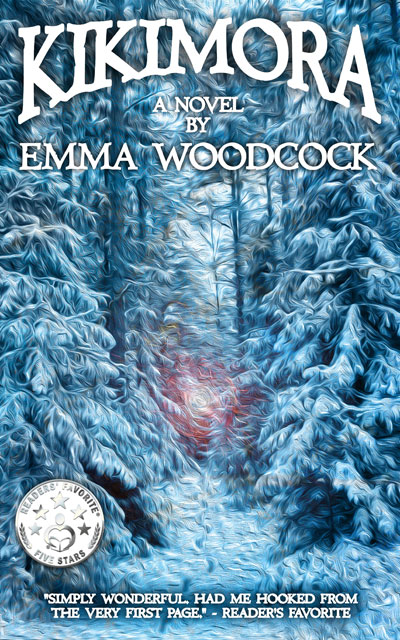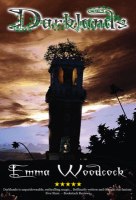There is a peculiar and quite unique feeling of dread, dismay and curiosity when you begin reading a new book and find it uncannily similar to your own work in progress.
I had just such an experience last week reading The Witch’s Boy by Michael Gruber. The story concerns an ugly child raised by a natural philosopher type of magical person in an archetypal fairytale forest with the assistance of a wise cat and furry, forest dwelling being. This set up also describes my mid-second-draft work in progress, Kikimora.
The story includes several short stand alone fairy tales, as does Kikimora – though in The Witch’s Boy these are all novel re-tellings of traditional fairy tales, while mine are original.
My initial mortification mellowed somewhat as the story developed in a quite different direction to Kikimora. But then at the end, the similarities once more came thick and fast. It even veered off into a section on mining and being trapped underground. This idea forms a significant part of the climax for both The Witch’s Boy and Kikimora 😦
The awful thing is this isn’t the first time it’s happened to me. Back in 2007, still smarting from my first rejection letter, I picked up this vampire book everyone kept going on about. Disbelief was followed by increasing outrage and mortification as each new similarity was revealed between my own rejected Shadow Hunter, and Stephanie Meyer’s Twilight. I’m *still* mad about it (mainly because Twilight is so bad, but also because I’d been writing that book on and off, tweaking and altering it for the past 25 years!)
Shadow Hunter is a very different sort of story to Twilight, and the protagonist takes a vastly different path to Bella Swan, but too many details are horribly close, particularly near the beginning. The single thing that rankled the most is that Bella Swan is studying Macbeth as school – but it isn’t really important in any way; just a name mentioned. My protagonist is studying Macbeth at school – but I referenced it throughout the story, drawing parallels between Macbeth’s quest for power and rationalisation of his actions with those of my increasingly unhinged protagonist.
So I would have to lose a nice, nuanced recurring motif from my novel because it recalls a throwaway detail in Twilight. Grrs.
In that instance I shelved Shadow Hunter, and it about broke my heart. I get it out and look at it again every couple of years, thinking, could I salvage it somehow? Could I change some details? But like Macbeth, every element I look at seems essential to the mood, character, tone.
So now this has happened to me twice I find myself wondering how many other people must experience the same thing? It is after all common in Hollywood for two different films to plough the same furrow at the same time (Deep Impact v Armageddon? The Illusionist v The Prestige?)
Does it mean that I’m good at predicting zeitgeisty trends? Maybe. But the worrying thing is that if I keep having the same ideas as other people they will always pip me to the post, cuz I’m so slow meticulous Kikimora is by far my swiftest work so far, and that’s knocking on two years in progress. I’m beginning to think I’ll be lucky to release it this year.
So what do you do in this situation? Throw your work away in despair? Somehow try to work in some artificial and ill-fitting alterations? Plough ahead regardless and hope for the best?
Perhaps the important thing first of all is to take a deep breath and try to look at the problem objectively. Are the similarities really as glaring as you think? Or is your own heightened awareness of every tiny detail of your work causing you to inflate the issue beyond reason? (kind of like the way every time you look in the mirror you think your nose/bum/teeth are too big and hideous, but no one else knows what you’re talking about..?)
If possible get a second opinion from someone else. But that’s difficult if your work is still unfinished. It’s hard enough to hand over a polished draft to a friend for criticism, never mind an unfinished or hastily assembled draft for comparison with a published novel (which you will have to persuade your friend to also read).
Make a note of every similarity you find. Is it the plot? Is it the characters? Or is it more the details – the set dressing, the style? Could any of the similarities be changed without sacrificing the integrity of the story?
Also consider how well known is this other novel? I am of course not endorsing plagiarism of any kind or degree (For an interesting discussion of literary plagiarism see this post on Dear Author). What concerns me is the public’s perception of plagiarism. If most of the public has not read this other book, then you’re pretty safe. (This is another reason I simply shelved Shadow Hunter. The entire world has read Twilight. It is entirely irrelevant that I wrote the basics 25 years ago, and completed it before Twilight was published. I could dig out my faded and scribbled old notebooks to show people, but it wouldn’t make a jot of difference. If the book was known at all it would be known as that Twilight rip-off. Which is a greater indignity than I could bear.)
Ultimately, is a similarity between two stories as much of an issue as I imagine? As I already said, Hollywood does this all the time. If the public likes a thing they want more of it. Many stories bare similarities to other stories. So long as you are confident that you arrived at your ideas independently of this other source then perhaps it doesn’t matter?
I’d be interested to hear what other authors and readers think. Has this ever happened to you? What did you do about it? Have you ever read a book and thought, ‘Hang on, this is just like such and such a book!’ How did you feel about that? Did it bother you? Did you think less of the work you read second – even if you were assured of the author’s integrity?




On the ideas front I can see why you would not want to follow what another writer has done. The thing is so many books are published every year you would struggle to know whether your ideas match someone else anyway. There are only so many plot points and character types after all.
I wrote the first draft of my crime novel seven years ago and had a title and a few of the ideas that no-one else seemed to have used. In the intervening years the title was used by another writer for a best-seller, a fictional tv programme I created was used by another crime writer and various plot points were used by other stories. Timing!
I have made a few changes, but I haven’t stolen anything if I stay with the themes. I read loads of books or see films and tv programmes that use similar ideas. Your characters journey through your story set the novel out as yours and if you can tweak a few things to set yours apart then stick with it.
Good, calming advice! Thanks, Pete 🙂
Sent from my iPhone
I have begun piecing together what is going to be my first major piece of writing and have spent a long time on research, world building and plot creation. I was confident that i had an original, well thought out plan.
Then to my horror, whilst waiting for a class i teach to finish their library lesson, i picked up an old comic book and there, staring back at me was an almost identical world with the same rules, society, struggles etc. I couldnt believe it! I have never heard of this comic before and it is as if all my planning had just been splashed out onto its pages!
I am in a dilemma now. Do i continue with what i have been excitedly putting together or do i start from scratch and look for a different inspiration / idea?
Advice would be GREATLY appreciated!
Jason, it’s heart breaking, isn’t it?
I think Pete’s advice is sound though. Loads of stories bear similarities to other stories. I’m guessing ‘an old comic book’ isn’t going to be that well known by today’s readership? I would plough ahead regardless. As Pete says, “Your character’s journey through your story set the novel out as yours.”
Good luck 🙂